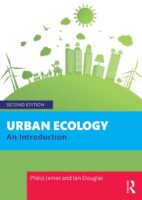![[PDF/ePub] Sustainable Futures for Climate Adaptation [PDF/ePub] Sustainable Futures for Climate Adaptation](https://www.interesbooks.com/wp-content/uploads/2023/11/211145040.jpg)
Sustainable Futures for Climate Adaptation PDF Epub Download
Read online
You can read this ebook online in a web browser, without downloading anything or installing software.
Download file formats
This ebook is available in file types: PDF or EPUB or both (encrypted)
Read on Your Favourite Devices
PC or Mac.
iPhone or iPad.
Android phone or tablet.
Some e-readers:
Sony, Cool-er, Nook, Kobo, iRiver, etc.
Kindle Fire Tablets:
Kindle Fire, Fire HD, or HDX.
Share Ebook
Sustainable Futures for Climate Adaptation
Wearing Our EcologyConsidering sustainability as a flawed and restrictive term in practice, Sustainable Futures for Climate Adaptation argues that we must radically adapt humanity and reform society, cities, buildings, and our approach to migration in order to coexist in harmony with our natural environments.
The book conceives an Earth–human coexistence where the world’s regions are shared globally between all people, in contrast to a reality where we have lost touch with the natural world. It is this decoupling of humanity and nature that has brought us to the brink of climate disaster. In response, Benedict Anderson explores the concept of ‘wearing our ecology’, where human mobility is synchronized with the environment, merging people with landscapes, topographies, and geographies. Anderson argues that we need to create new migration routes for people moving between the Global South and North and establish flexible and adaptive living environments. Only by rethinking separations between urban and rural, resource extraction and consumption, racial prejudice and accessibility are we able to forge a closer partnership with nature to adapt to climate change and mitigate the worst of its effects.
Touching on themes of adaptive urban design, racial and gender segregation and inequality, and climate apocalypticism, this book will be valuable reading for researchers, scholars, and upper-level students in the fields of urban studies, migration studies, human geography, ecology, politics, and design.
Published: December 11, 2023
Title: Sustainable Futures for Climate Adaptation
Author: Benedict Anderson
Edition: 1
ISBN: 9781003819714
Publisher: Taylor and Francis
Language: English
Formats: PDF | ePub
ISBNs:
9781032438627
9781003819622
9781003819714
Get PDF/ePub eBook [instantly]
Monthly Special!*
Click here to get coupon codes and how to use it (up to 50% discount).

